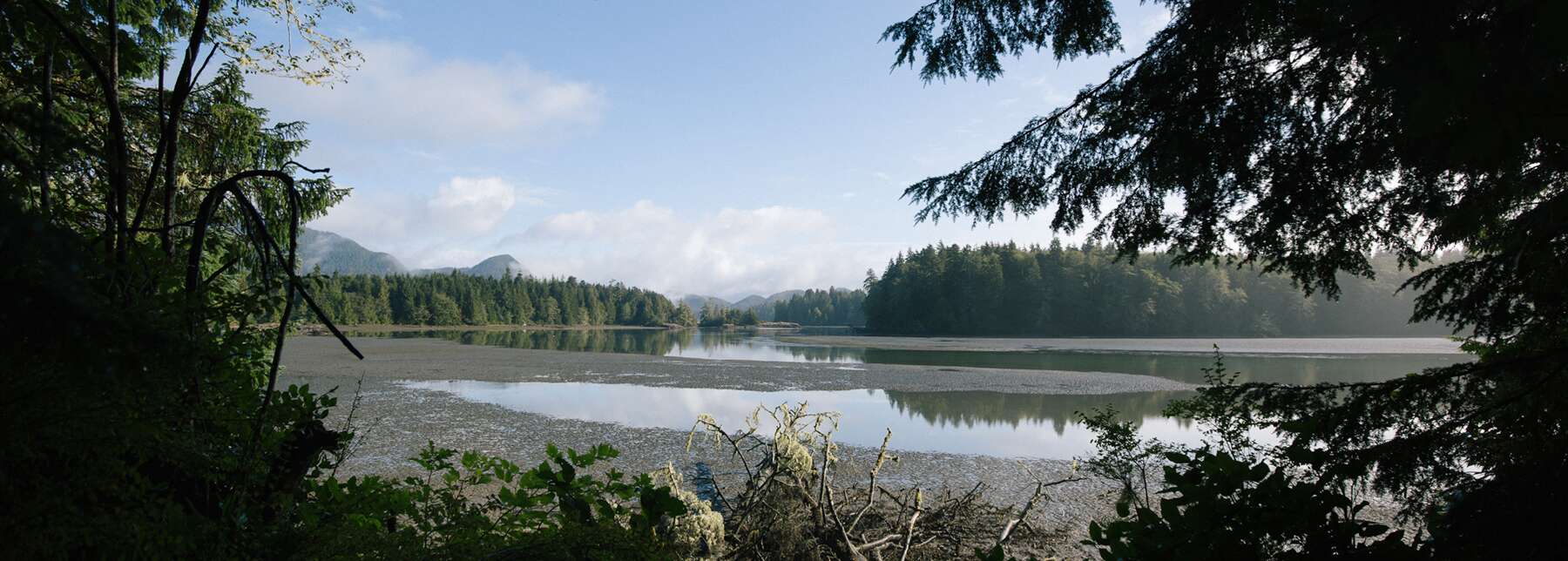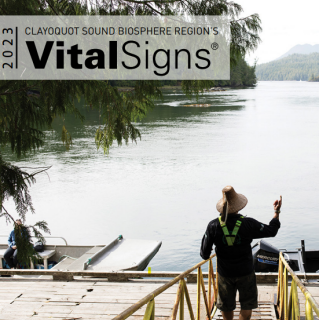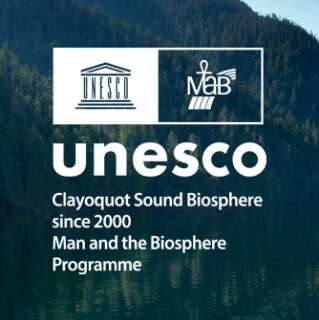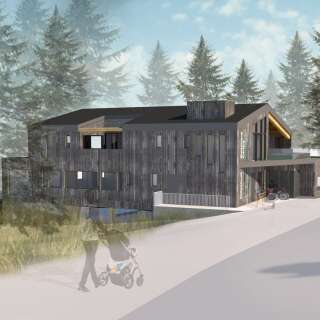Announcing the 2024 Research & Environment Grants
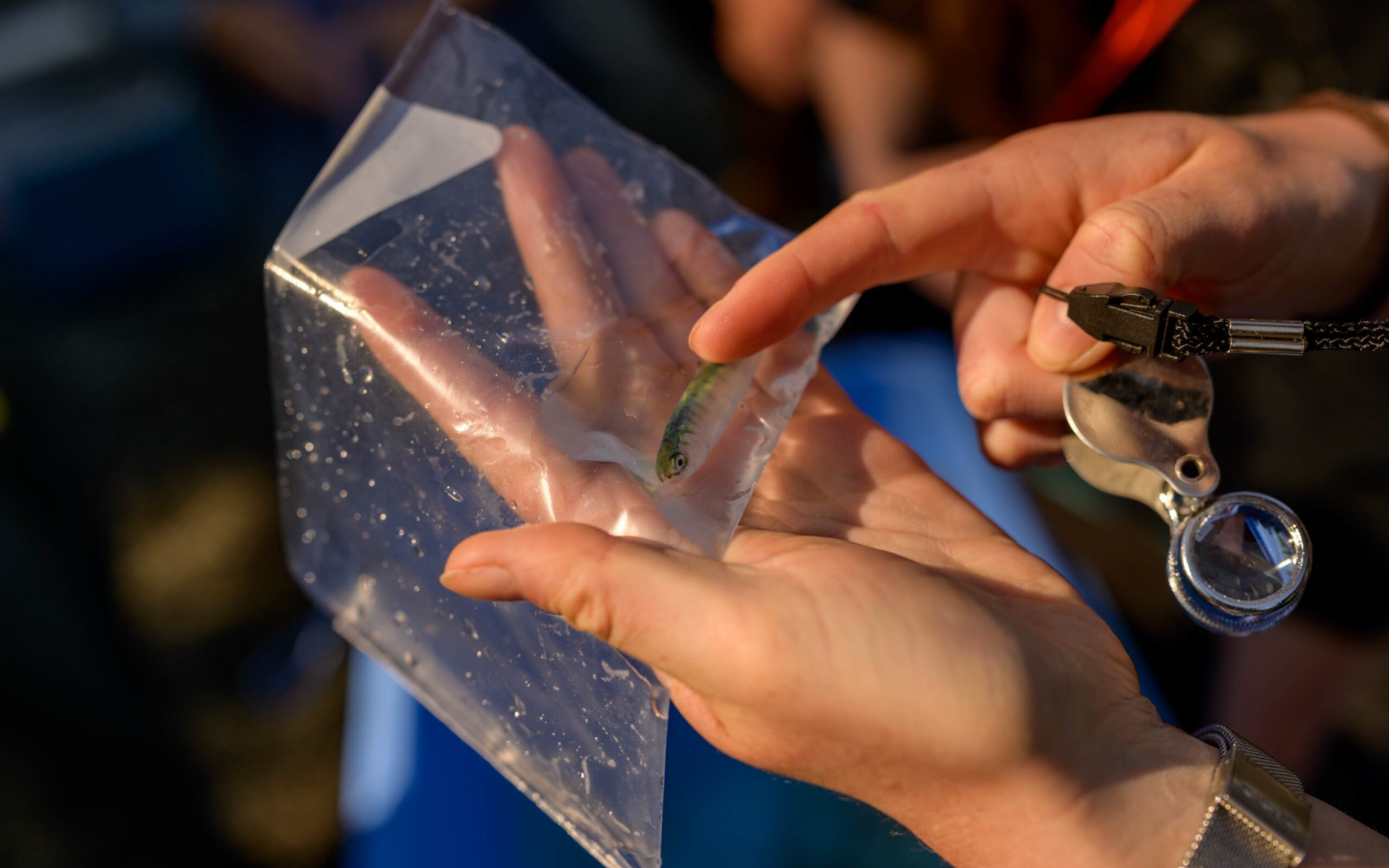
We're excited to announce the recipients of the 2024 Research and Environment grants. This year, the CBT awarded a total of $36,000 in funding to six inspiring projects in the region. These projects address threats to key species and ecosystems and uplift nuučaan̓uł (Nuu-chah-nulth) ways of knowing. Efforts also focus on habitat conservation, restoration, and protection for ecologically and culturally important species and ecosystems.
We deeply appreciate the efforts of the Research and Environment Advisory Committee, comprised of dedicated local volunteers, for their time and efforts to review each application. We also want to thank Tofino Resort & Marina for contributing towards these projects through the Clayoquot Sustainability Fund.
To learn more about the projects, or connect with project leaders, email colin@clayoquotbiosphere.org.
2024 Research and Environment Grant Projects
ʕaaḥuusʔatḥ (Ahousaht) Fisheries Clam Beach Renewal – Ahousaht First Nation Fisheries Department
The goals of this project are threefold: to strengthen traditional clam beach stewardship practices, promote this knowledge transfer to ʕaḥuusʔatḥ youth, and increase shellfish populations on beaches seeing shellfish declines. Historically productive and culturally significant, Clam beaches, often termed “clam gardens”, in ʕaḥuusʔatḥ haḥuułii are vital for food sovereignty and economic opportunities. Shellfish populations have decreased due to factors like aging clam diggers, increased predation, invasive species, and reduced traditional tending. ʕaḥuusʔatḥ Fisheries staff will identify and restore these beaches using techniques like seeding and beach tending. High school students will be actively involved, emphasizing youth engagement. Restoration efforts will commence in the summer of 2024, with implementation and impact monitoring in the spring of 2025.
Assessing the Effectiveness of Seasonal Chinook Closures – Ha’oom Fisheries Society
Suuḥaa (Chinook Salmon) are vital to the Pacific Northwest's ecology, economy, and cultural heritage, but they face challenges like habitat degradation and overfishing. Conservation efforts and fishing regulations by the Department of Fisheries and Oceans (DFO), including spatial and temporal closures, aim to protect migrating stocks on the West Coast of Vancouver Island. However, the ƛaʔuukʷiʔatḥ (Tla-o-qui-aht First Nation) and ʕaaḥuusʔatḥ (Ahousaht) question the efficacy of these measures and seek genetic stock identification of Suuḥaa during closures. The Ha’oom Fisheries Society is working on a research project for in-season monitoring and sampling of Suuḥaa in Clayoquot Sound to evaluate the closures' impacts. This project, in collaboration with ƛaʔuukʷiʔatḥ, ʕaaḥuusʔatḥ, Tla-o-qui-aht Fisheries, and Maaqutusiis Hahoulthee Stewardship Society, will run from mid-April to late August, coinciding with peak fishing season. It aims to provide insights into Suuḥaa migration, local stock dynamics, and fishing pressures, informing better management strategies for sustainable conservation.
Harbour Health & Environmental Education – Ucluelet Aquarium
The Ucluelet Aquarium aims to enhance community education through events and activities to foster a deeper understanding and stewardship of local marine ecosystems and Indigenous culture within the community. Key initiatives include:
- Safe Wildlife Practices with Bob Hansen: Monthly talks from June to September 2024 to educate the public on responsible wildlife interactions, promoting conservation and protection of key species and habitats.
- Habitat and Species Protection Talks: Six talks from summer to fall 2024 with local experts discussing habitat conservation, emphasizing the safety of ecosystems and organisms, and encouraging community engagement in biodiversity and conservation efforts.
- nuučaan̓uł Language & Culture Integration: Efforts to incorporate nuučaan̓uł language into the aquarium's space, including a culturally significant map and species labels, culminating in a public event in March 2025 to celebrate and educate on Indigenous knowledge and cultural significance.
- Interactive Educational Map: Hiring a local graphic designer to create a dynamic, interactive map of the Ucluelet Peninsula for permanent display, featuring important landmarks, real-time wildlife info, and Nuu-chah-Nulth cultural and historical knowledge.
Shellfish Toxicity Monitoring in ʕaḥuusʔatḥ (Ahousaht) Hahoulthee - Maaqutusiis Hahoulthee Stewardship Society
Working in tandem with the project described above, this project will improve safety measures around shellfish food sources. ʕaḥuusʔatḥ musčim (people) have relied on shellfish for food since time immemorial. In recent times, shellfish toxicity has become a health and safety concern for those who rely on wild harvest of shellfish. The goal of this project is to better understand the potential toxicity of shellfish in ʕaḥuusʔatḥ Hahoulthee (territory). The three groups of toxins to be tested are saxotoxins (paralytic shellfish toxins), demoic acid (amnesic shellfish toxins), and diuretic shellfish toxins. California mussels (Mytilus californianus) will be collected as an indicator species. Once these mussels have passed the necessary toxicity tests (i.e., not exceeded toxicity thresholds), then target species, such as butter clams (Saxidomus gigantea) will be collected for testing. Sample collection and monitoring will continue on a regular basis in order to ensure there are no gaps in safety.
Ten Years of Sea Star Wasting Surveys in the Clayoquot Sound Biosphere Region – Redd Fish Restoration Society
Redd Fish Restoration Society has integrated Strawberry Isle Marine Research Society (SIMRS) to continue their shared commitment to the well-being of the oceans, the preservation of fish habitats, and the care and stewardship of marine ecosystems. This amalgamation allows Redd Fish to complete SIMRS's long-term projects, including sea star wasting syndrome (SSWS) surveys. Sea stars are an important keystone species, particularly sunflower stars and ochre stars, and are responsible for maintaining the balance of biodiversity and health of intertidal and subtidal ecosystems. This research is tracking the spread of SSWS on this coastline and contributes to the understanding of the ecological effects on surrounding ecosystems. Redd Fish hopes this 10th year of survey data will help researchers identify early warning systems for future environmental threats in the Clayoquot Sound Biosphere Region. The Sea Star Stewardship Program (SSSP) engages locals and visitors in scientific surveys, promoting marine stewardship. Partnering with local organizations, the SSSP contributes to a North America-wide monitoring effort. The project included community-led sea star surveys planned from May to August 2024, marking the program's 10th and final year. This decade-long project has trained community members as ocean stewards, promising lasting impacts. The project also supports data integration into the MARINe database, with findings shared with community and Nation partners.
Whales of Clayoquot and Barkley – Marine Education and Research Society (MERS)
Since 2019, the Marine Education and Research Society (MERS) has documented whale sightings, contributing to the Canadian Pacific Humpback Collaboration (CPHC), which consolidates data for regional and international monitoring. MERS’s efforts help track whale movements, document new calves, and address entanglement and vessel strike issues. This project aims to fill research gaps, enhance Humpback conservation, and provide valuable data for mapping and photo-ID catalogues for researchers and the community. The team also does extensive community outreach to build knowledge and understanding of the issues whales face today and improve the relationship between whales and humans in nuučaan̓uł (Nuu-Chah-Nulth) territory.
